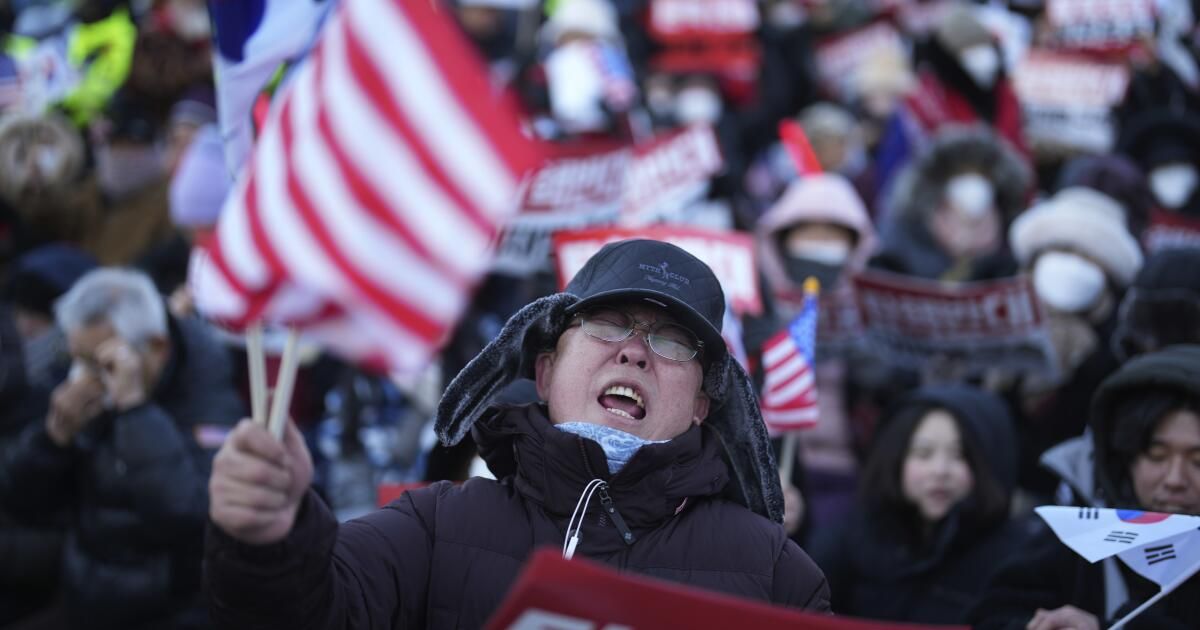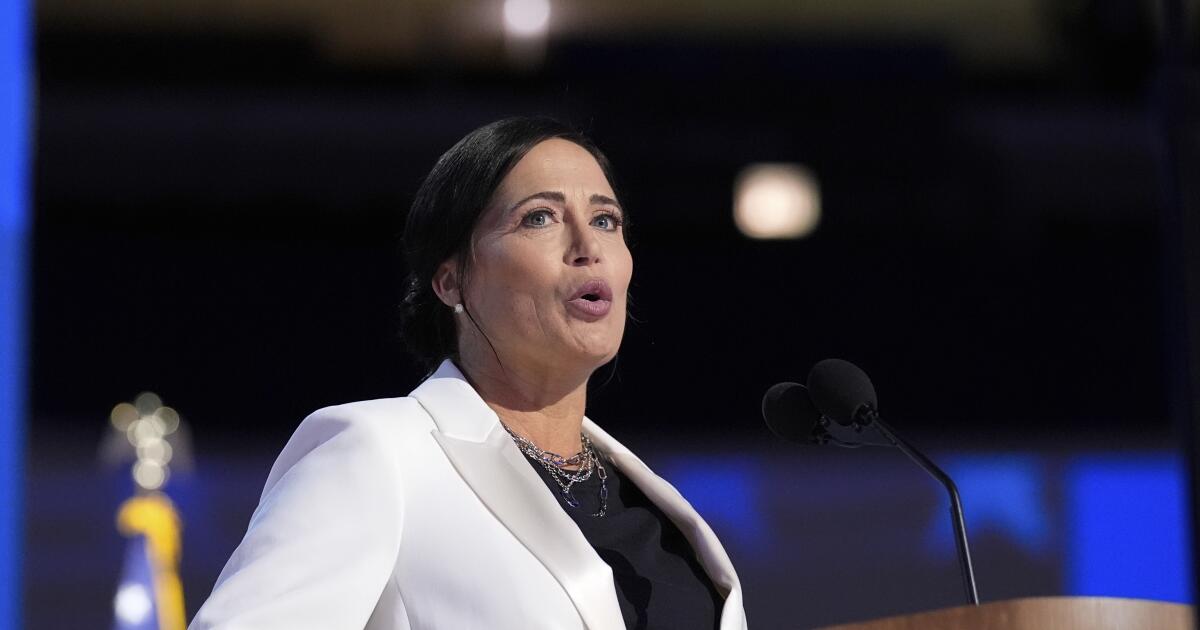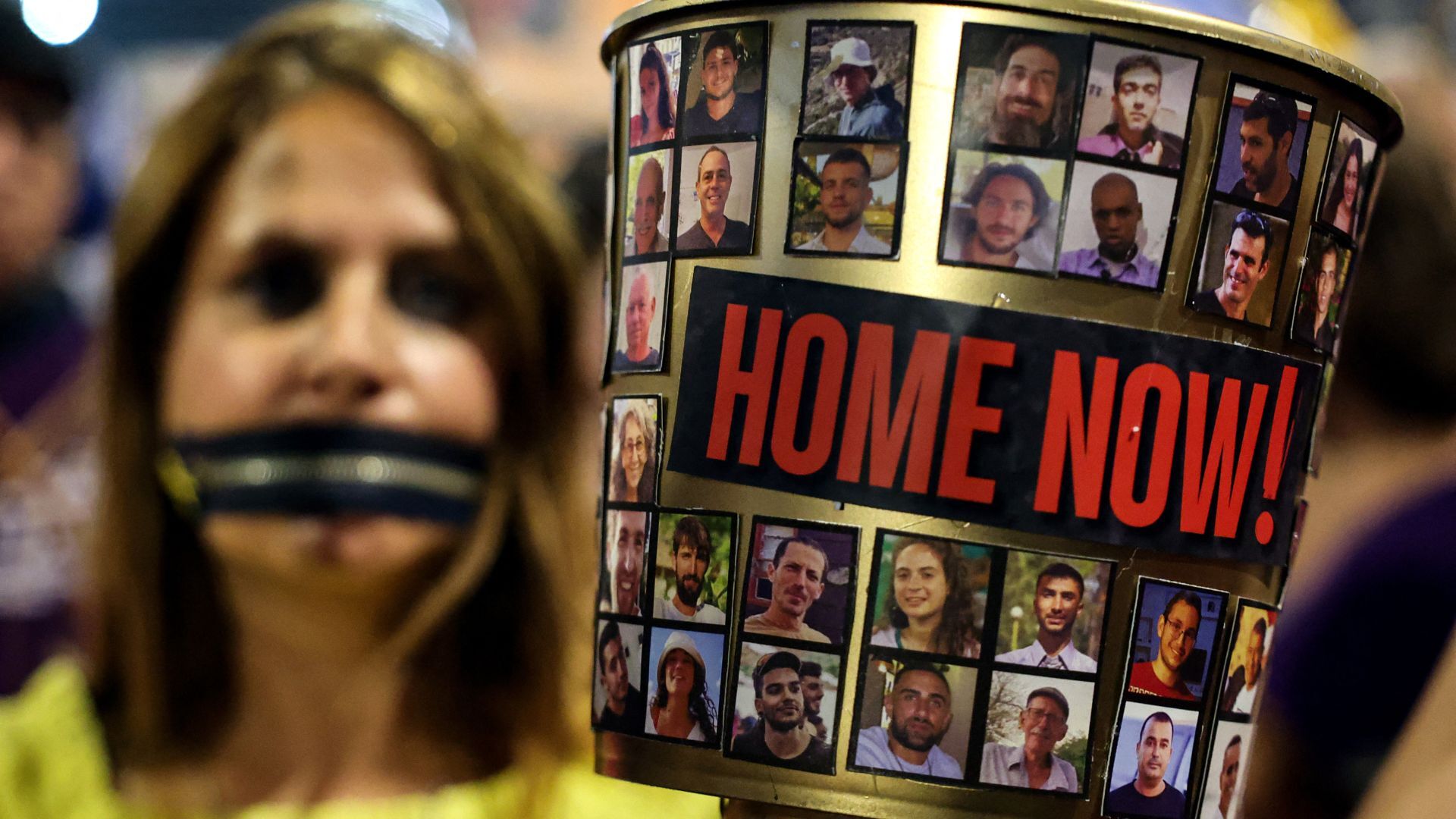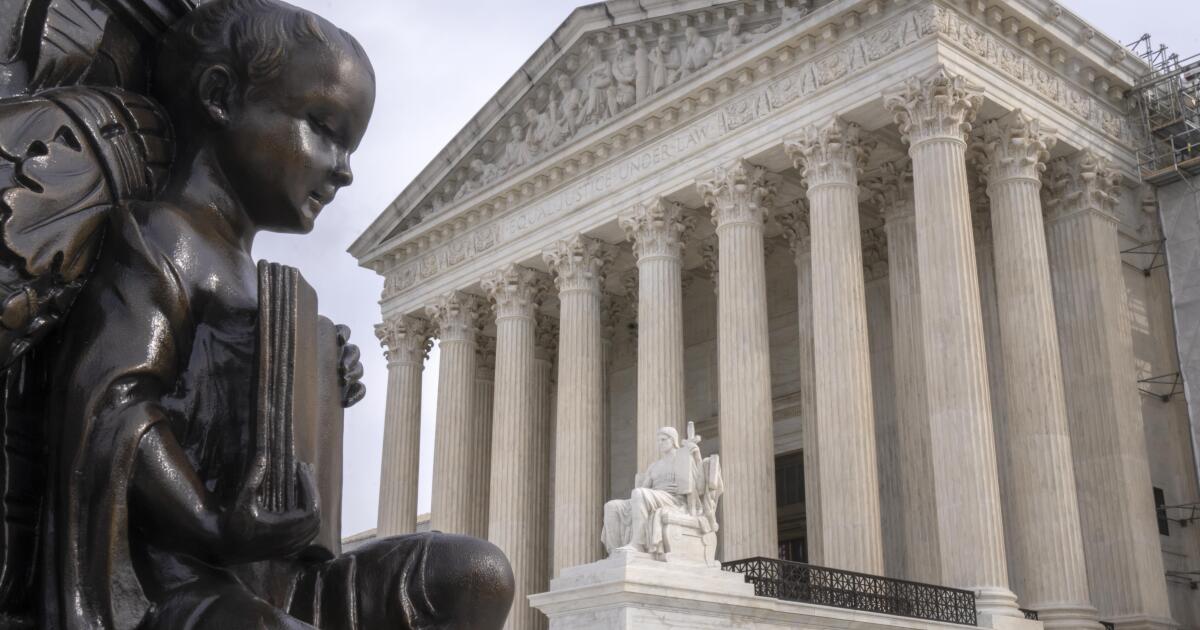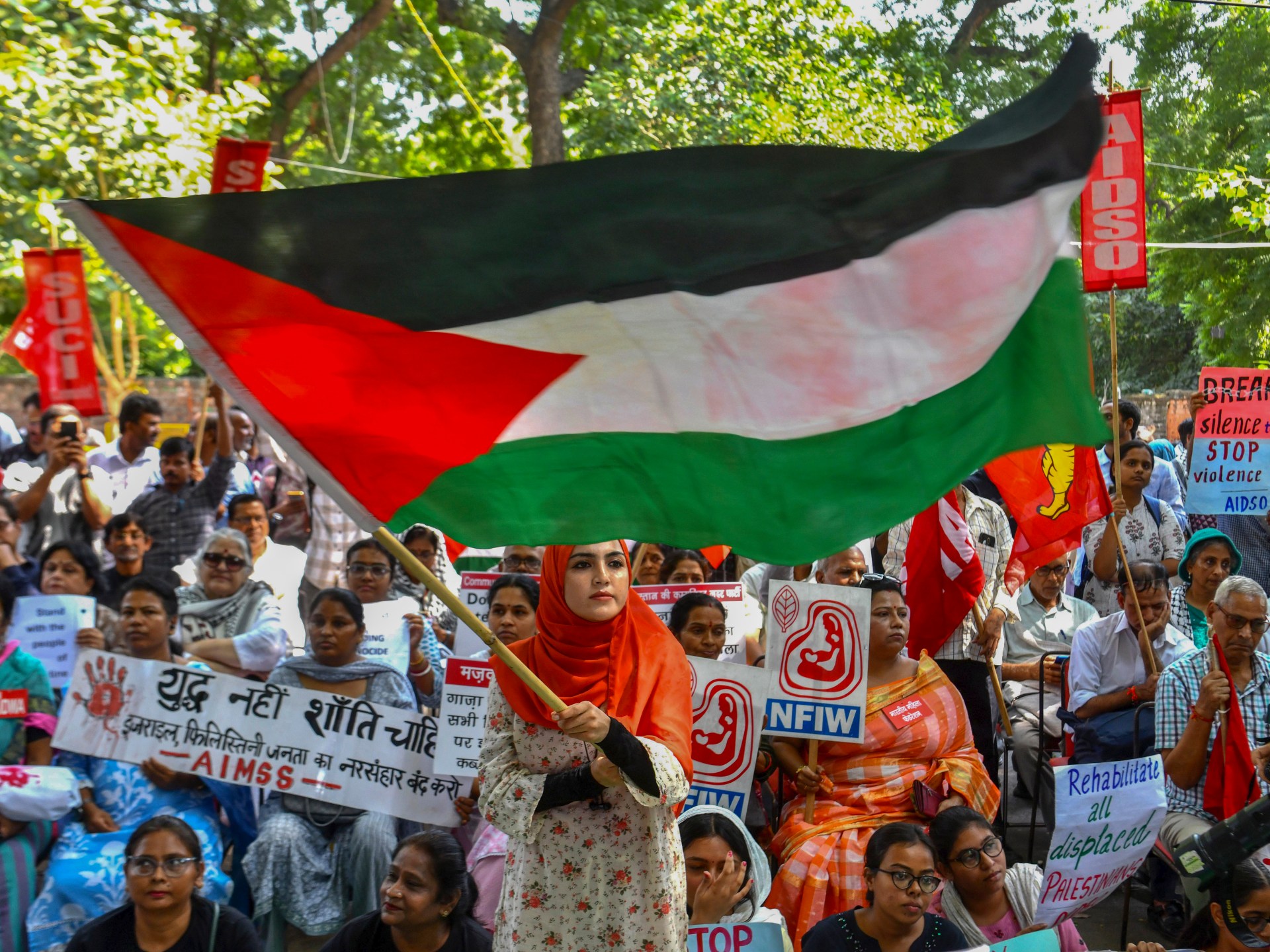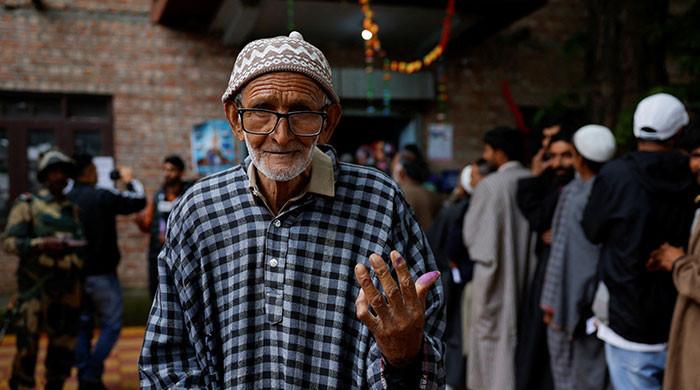SEOUL— They gathered in sub-zero temperatures, waving signs that read: “Stop the steal.”
Some expressed faint hope that President-elect Donald Trump would support their cause; others accused the Chinese Communist Party of infiltrating the South Korean media.
All of this was in the service of one objective: to save the South Korean president, Yoon Suk Yeol.
A month after his brief declaration of martial law led to the suspension of his presidential powers, Yoon, who faces impeachment and criminal investigation for insurrection, has evaded arrest by taking refuge in his presidential residence in central Seoul. .
The closed compound, now fortified with barbed wire and buses parked to form a barricade, has become a rallying point for his latest followers: ultraconservative protesters and YouTubers who believe, as Yoon has claimed, that the country has been invaded by North Korea. Sympathizers plotting to destroy South Korea's freedoms.
Among those gathered here on Wednesday was Lee Kwang-hoon, a 63-year-old apartment security guard who had left work to join the several hundred Yoon supporters occupying the main street outside the president's residence. .
“Leftists are trying to accuse President Yoon of insurrection,” he said. “We are here to save the country.”
Made up primarily of older South Koreans in their 60s and 70s, fueled by the fervent anti-communist spirit of an earlier era, the group has aligned itself with Christian extremists, the American far-right and YouTube channels awash with conspiracy theories.
While long dismissed as bigots by the general public, Lee and his peers have found a new source of legitimacy: Yoon, who in recent weeks has openly expanded on his ideas, including a widely debunked election conspiracy theory that was in the center of his failed martial speech. declaration of law.
In a recent public speech, Yoon acknowledged that he had ordered his defense minister to inspect the electronic systems of the National Election Commission, suggesting that the results of last year's general election, which gave a massive legislative majority to the country's liberal party , were the result of a subterfuge.
“How could the South Korean people trust the election results?” -Yoon asked.
In the midst of his growing problems, the president has made his affinities with the extreme right even clearer.
On January 1, two days before South Korean investigators made their first unsuccessful attempt to arrest him, he sent his supporters a signed letter reiterating his well-known call for action against “anti-state” forces and promising to “fight to the end.” ”. “
“I am observing your efforts through live streams on YouTube,” the letter said.
As investigators prepare to make a second attempt in the coming days, Lee said he would stand between them and the president.
“Even if they send the police special forces unit, I will block them with my body,” he said. “I would rather sacrifice my own life than live in a country controlled by communists.”
Even before the current crisis, Yoon's embrace of right-wing YouTubers raised concerns.
More than two dozen YouTube personalities were invited to Yoon's inauguration by first lady Kim Keon-hee. Some were later appointed to government positions.
In a memoir published last year, Kim Jin-pyo, former speaker of the National Assembly, recalled meeting Yoon shortly after the 2022 Itaewon Halloween disaster, in which 159 people were crushed to death after becoming trapped in a narrow alley.
When Kim urged the resignation of Interior Minister Lee Sang-min, Yoon responded that he had “strong suspicions” about the “possibility that the incident was induced and planned by certain forces,” Kim wrote.
“I couldn't believe that the kind of conspiracy theory that appears on far-right YouTube streams was coming out of the president's mouth,” the former spokesman said.
In recent weeks, rather than distancing themselves from Yoon, many in his party have followed his lead.
On Sunday, several lawmakers from Yoon's conservative People Power Party attended a rally organized by Jeon Kwang-hoon, an ultraconservative pastor who has sparked controversy for demonizing Muslims and advocating the institutionalization of homosexuals.
The next day, 44 of them visited the demonstration in front of the presidential residence as a sign of support.
“I express my boundless respect for these efforts to protect the president and the country,” said lawmaker Yoon Sang-hyun.
Some within the conservative camp have expressed alarm at the party's embrace of a group that most traditional conservatives had kept at arm's length, as well as the persecution of lawmakers who have flouted the party line to support impeachment and the arrest of the president.
Kim Sang-wook, a PPP lawmaker who has been one of those dissenting voices, recently revealed that he had been ostracized by senior party members, one of whom pressured him to leave the party.
“That's a totalitarian idea and only something a far-right party would say,” he told reporters Thursday.
Experts say the PPP's refusal to abandon Yoon is little more than an attempt at survival.
“I think the PPP leaders have essentially judged that, without a viable exit strategy, they have no choice but to support Yoon,” said Jung Byung-kee, a political scientist at Yeungnam University. “The probability that Yoon's impeachment will be confirmed is very high, and if that happens, the PPP will become the political party that has been impeached twice. “Then they lose any justification for existing.”
In 2017, Park Geun-hye, another conservative, was the first South Korean president to be removed from office, following a corruption scandal that saw more than 1 million protesters take to the streets.
Despite the fervor of Yoon's supporters, Jung notes that they are a vocal minority who represent a dying breed in politics.
According to a recent survey by polling firm Hankook Research, 70% of South Koreans believe the country's Constitutional Court should uphold Yoon's ouster, and a similar percentage say they believed Yoon's declaration of martial law constituted an insurrection.
“This kind of deeply ideological anti-communist politics only works on people aged 70 and older,” Jung said.

